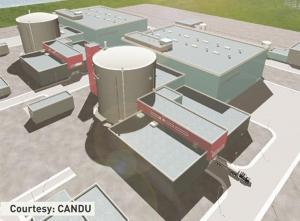
The role of nuclear power at the UN climate summit in Paris
In December, Canada participated in the 21st United Nations Climate Change Conference (called “COP21”). This conference aimed to hammer out, for the first time, a legally binding international agreement for fighting climate change. It was also Canada’s first major international forum under a new government.
Eyes also turned to supporters of nuclear power as a source of carbon-free power – such as the Nuclear for Climate organization, which brings together industry representatives from around the world, to fuel the debate about how to fight climate change and highlight the essential contribution of nuclear energy. Likewise, the World Nuclear Association expects nuclear power to play an important role in any global climate solution. For WNA Chair Jean-Jacques Gautrot, a successful COP21 declaration would ensure that a “doubling or tripling of the current nuclear generation capacity is recognised as an important component of any global action.”
Bringing nuclear power to the climate-change debate is an opportunity for Canada, says Dr. John Barrett, President of the Canadian Nuclear Association. “Canada is one of the very few countries that can offer expertise across the full spectrum of nuclear technology, from mining uranium to designing and building reactors, generating clean electricity and managing nuclear waste. We also have an independent government regulator with excellent capabilities. So we can export Canadian nuclear know-how at any level.”
The challenge at COP21 will be to achieve a focus on pragmatic approaches. As Dr. Barrett puts it, “The main risk is that COP21 participants embrace clean technologies that aren’t yet ready to power the world. Solar and wind technology have created lots of believers but not yet shown that they can reliably deliver power on the scale that industrialized economies require. Only two technologies—hydropower and nuclear energy—can deliver grid-scale power free of carbon, anywhere, anytime.”
Canada, which has some of the world’s largest reserves of uranium and a proven, safe nuclear technology, has a great opportunity to participate in the global fight against climate change. Though the decisions at COP21 will be made by political leaders, Dr. Barrett says that industry can play a supporting role: “As Canada re-engages in dialogue with other countries, it’s important that we put forward proven technologies with accurate information about their risks and benefits. We’re already talking with the government about how nuclear energy can meet its goals in energy, environmental and foreign policy.”



